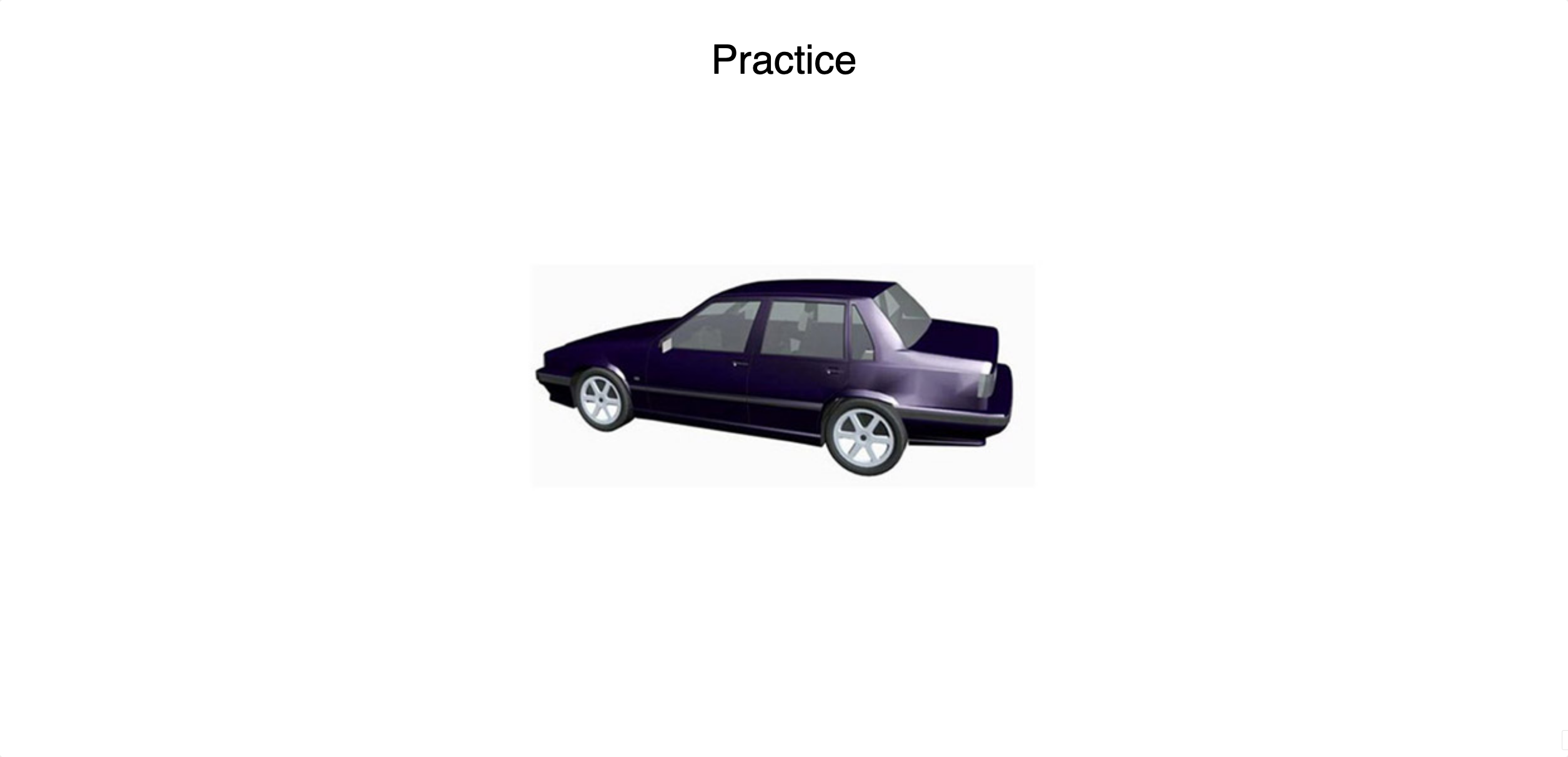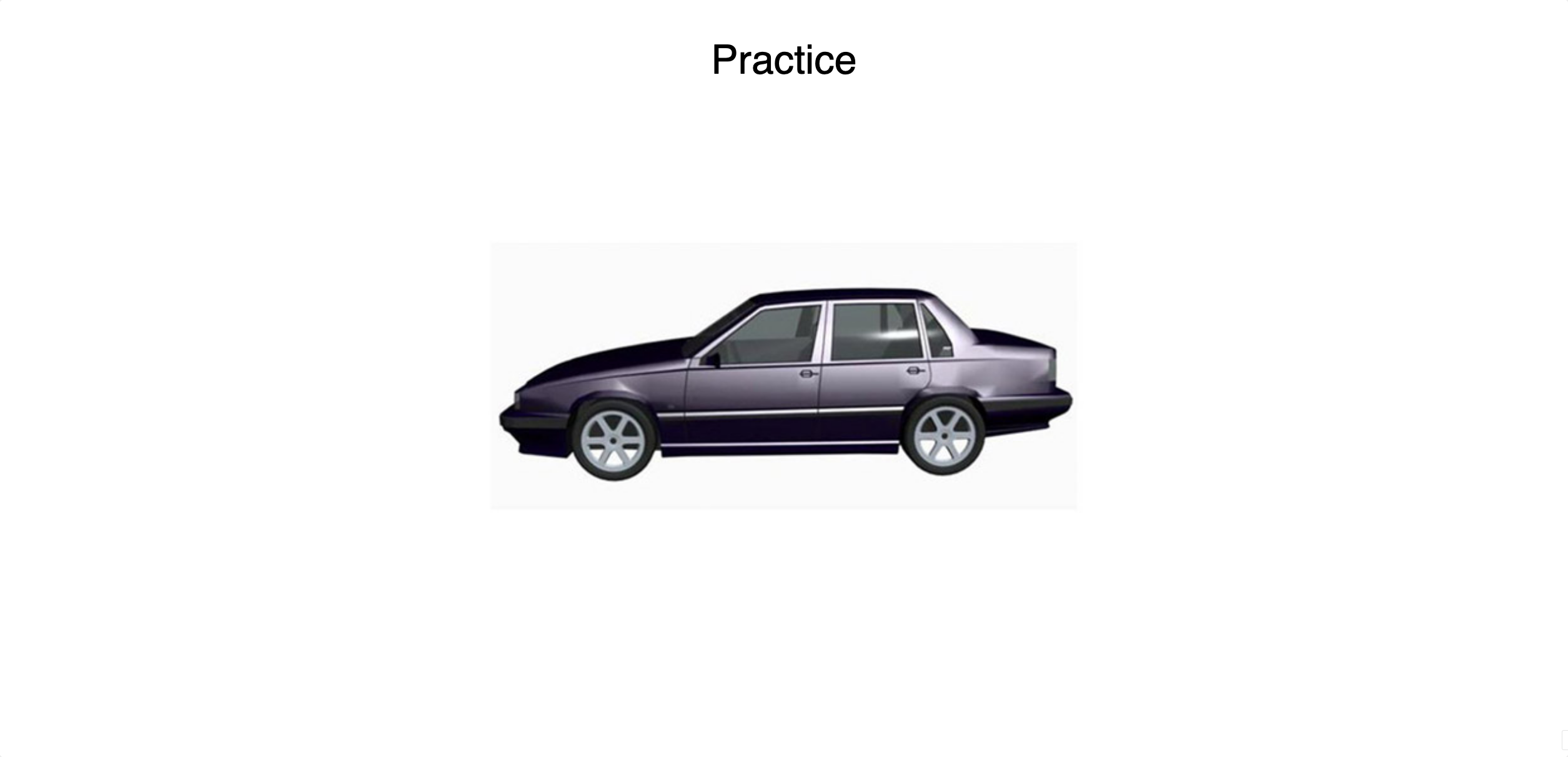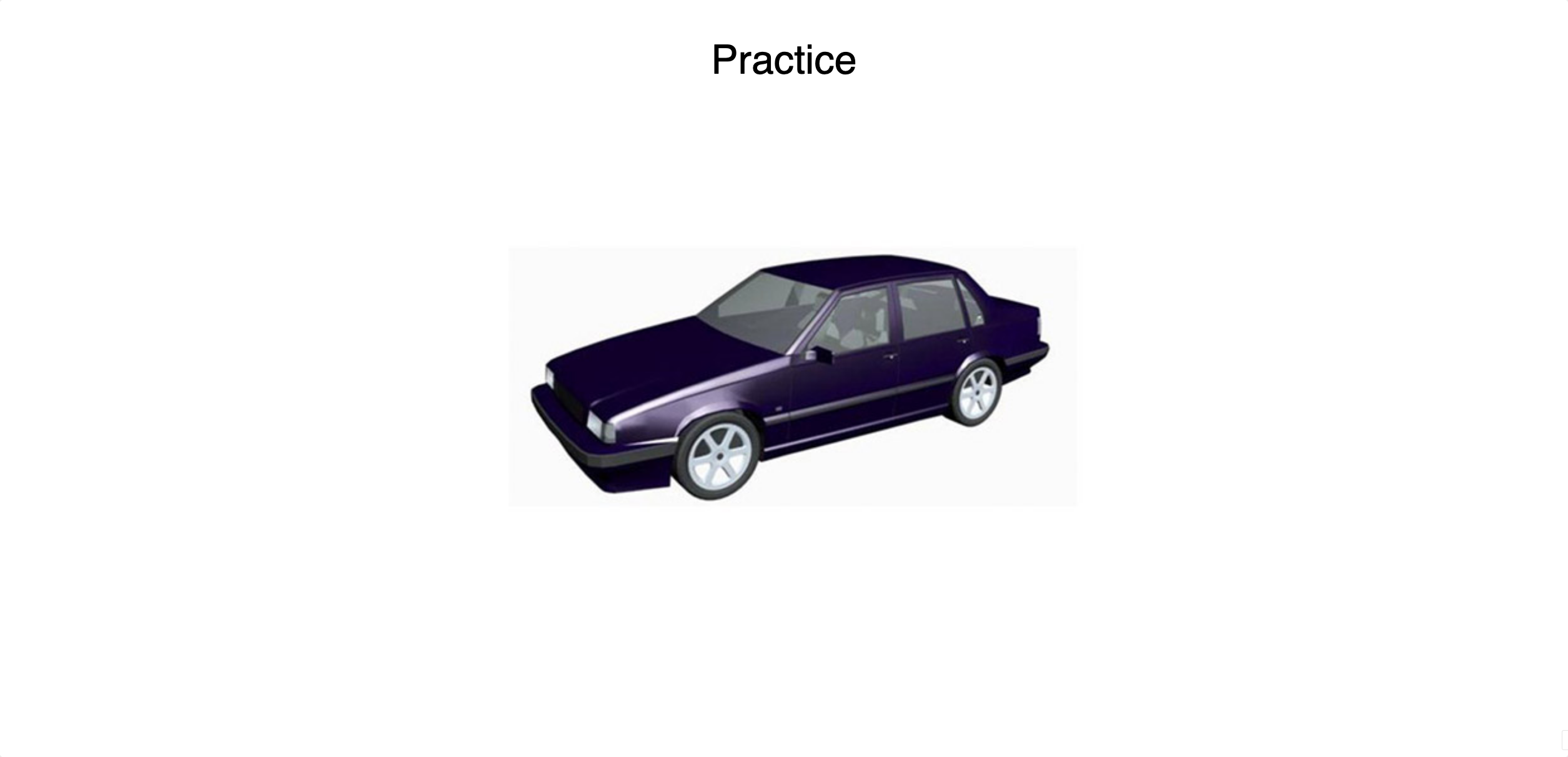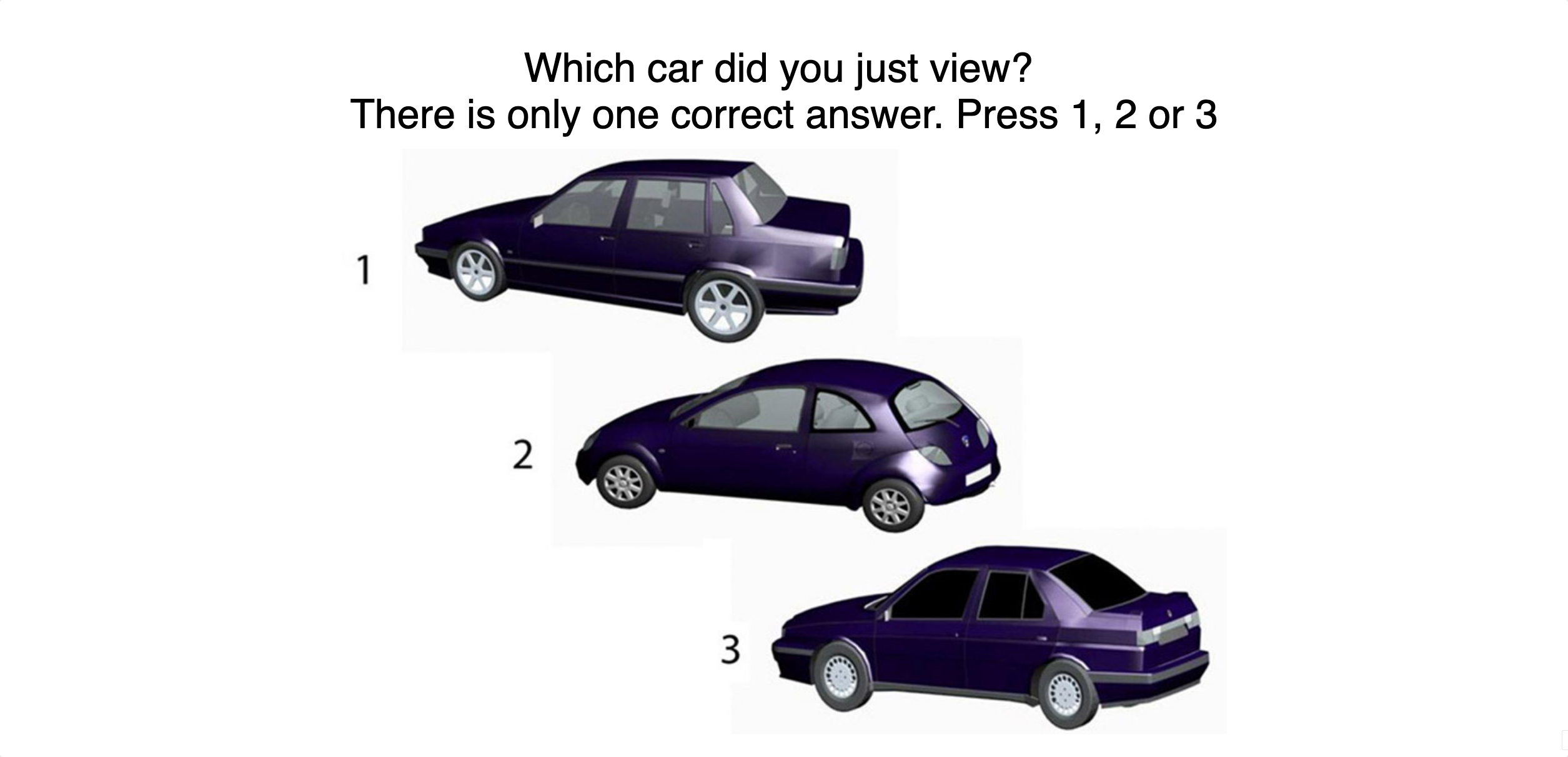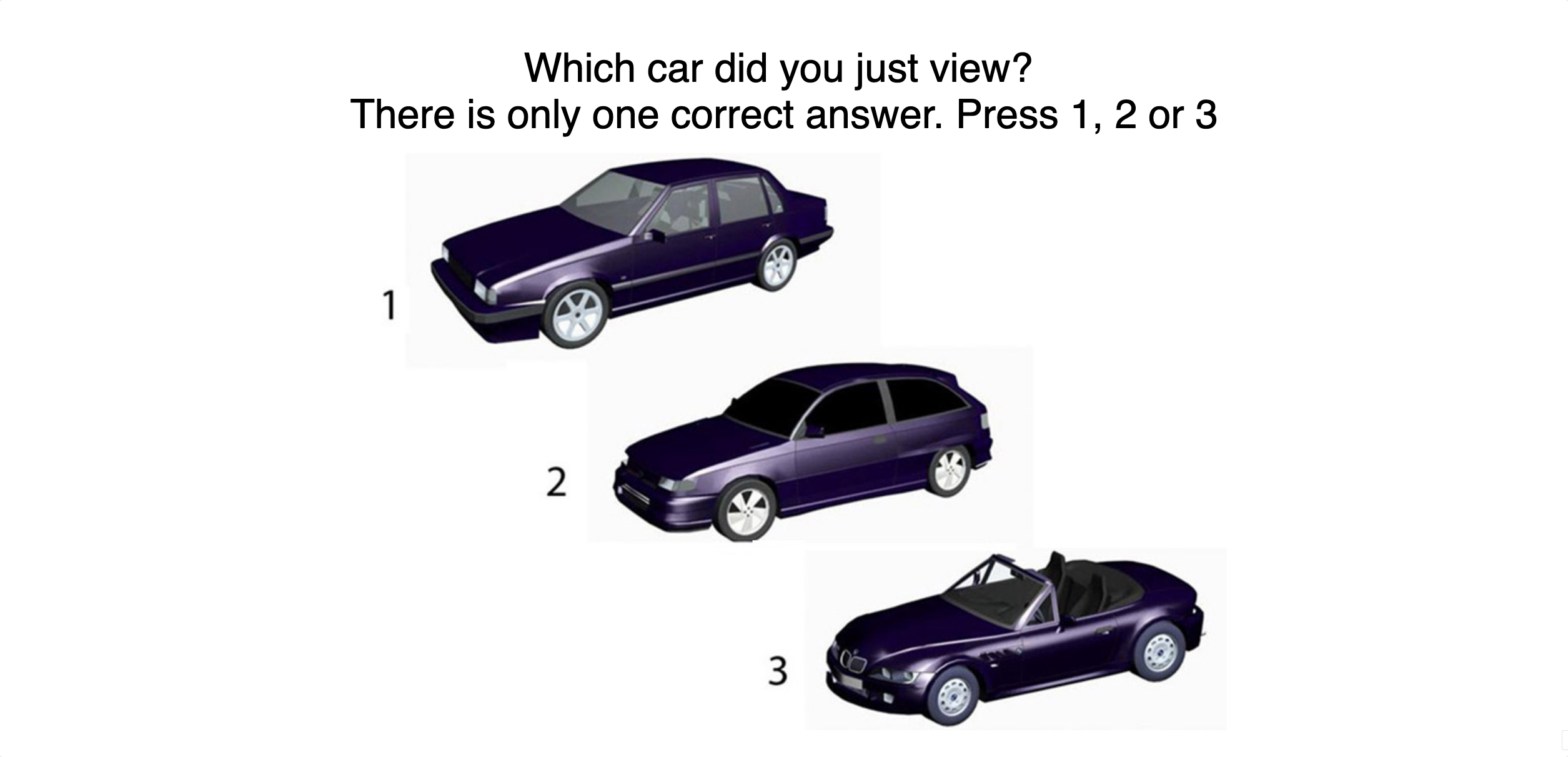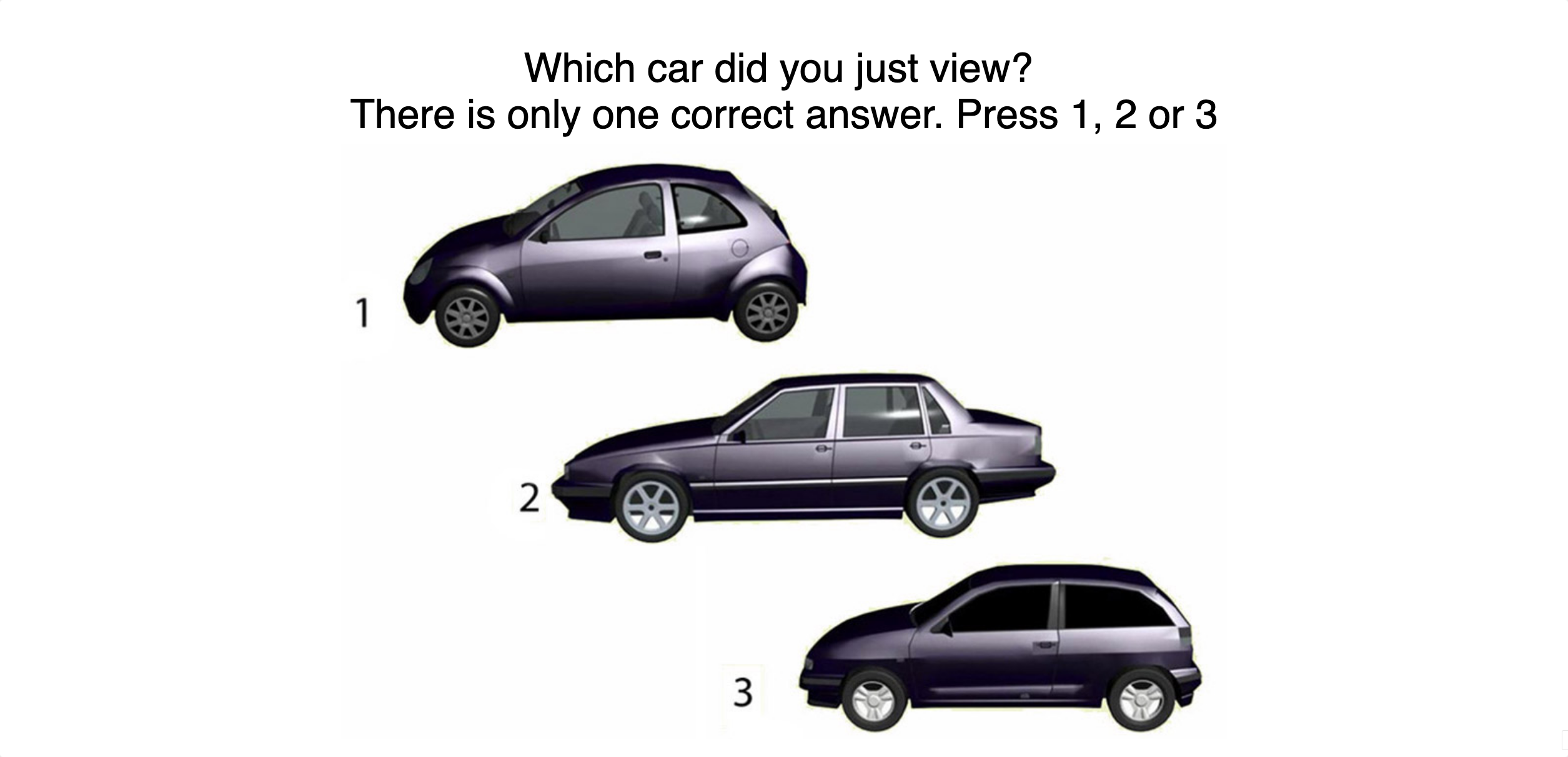Cambridge Car Memory Test (CCMT)¶
Abstract¶
Many research questions require a within-class object recognition task matched for general cognitive requirements with a face recognition task. If the object task also has high internal reliability, it can improve accuracy and power in group analyses (e.g., mean inversion effects for faces vs. objects), individual-difference studies (e.g., correlations between certain perceptual abilities and face/object recognition), and case studies in neuropsychology (e.g., whether a prosopagnosic shows a face-specific or object-general deficit). Here, we present such a task. Our Cambridge Car Memory Test (CCMT) was matched in format to the established Cambridge Face Memory Test, requiring recognition of exemplars across view and lighting change. We tested 153 young adults (93 female). Results showed high reliability (Cronbach’s alpha = .84) and a range of scores suitable both for normal-range individual-difference studies and, potentially, for diagnosis of impairment. The mean for males was much higher than the mean for females. We demonstrate independence between face memory and car memory (dissociation based on sex, plus a modest correlation between the two), including where participants have high relative expertise with cars. We also show that expertise with real car makes and models of the era used in the test significantly predicts CCMT performance. Surprisingly, however, regression analyses imply that there is an effect of sex per se on the CCMT that is not attributable to a stereotypical male advantage in car expertise.
Reference¶
Description¶
A three stage task where participants must identify target cars from memory in a 3-alternative forced choice (3AFC) task. Stages get successively more difficult, from identification immediately following presentation of an individual car to memorisation of six cars at once and a series of 3AFC decisions, to a series of 3AFC decisions with visual noise presented over the probes. Task acts as a measure of object memory that is matched in difficulty and structure to the Cambridge Face Memory Test (CFMT) outcome measure.

